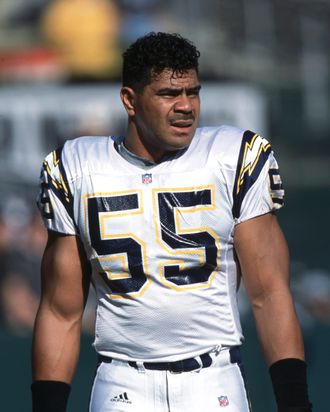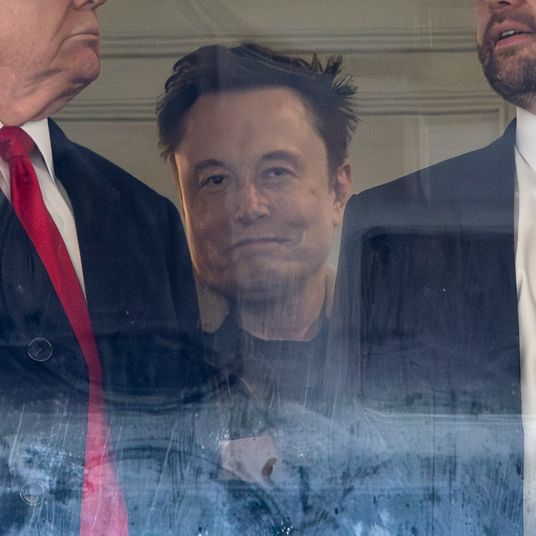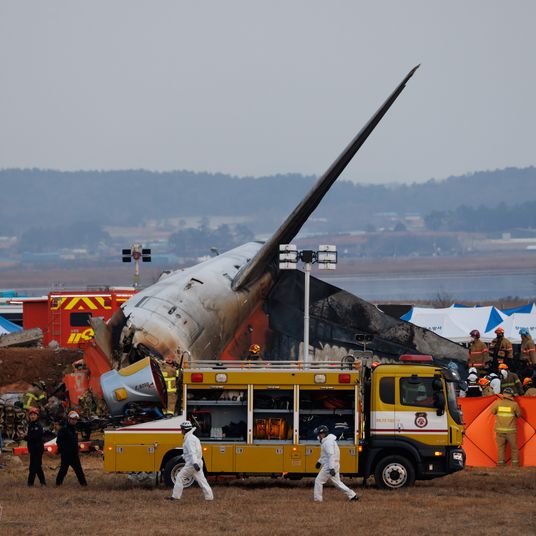
In about a half-hour, at 10 a.m. EST, Super Bowl XLVII Media Day will commence at the Superdome in New Orleans. (If you are an insane person, you can actually watch it live here.) The conversation will be dominated by the expected story lines: the Harbaugh brothers, Ray Lewis, whatever set of “throngs of sexy presenters” Bleacher Report can put together in a slideshow. It’ll be as ridiculous and disheartening as it always is, but this year, something new is probably going to happen: Just about every player is going to be asked about head injuries and football’s inherent dangers. Thus is the power of the presidency.
Yesterday, in The New Republic’s big relaunch interview with President Obama, the prez said he wasn’t sure he would let his son play football, if he had a son. As usual, Obama found a middle ground, pointing out the difference between professional football players (“They can make some of these decisions on their own, and most of them are well-compensated for the violence they do to their bodies“) and collegiate ones (“You read some of these stories about college players who undergo some of these same problems with concussions and so forth and then have nothing to fall back on.”) But no one will remember that: All they will remember is “I’d have to think long and hard before I let [hypothetical son] play football.” It’s a question that not only every football fan parent has pondered, but even some NFL player parents have as well, most notably Jets linebacker/crazy person Bart Scott.
Piling on this week was Ravens safety Bernard Pollard, who told CBS Sports this week that he doesn’t think the NFL will be around in 30 years. Now, he was coming from a somewhat opposite direction on this; he was saying that the league will try to soften and safen the game so much that fans won’t want to watch it. (Which is something the NFL keeps readily in mind every time a safety issue pops up.) But the idea that the NFL could be in serious long-term trouble because of CTEs and concussions is not a new one. As we wrote at the beginning of the season, the notion of the End of Football has been floated more regularly in recent years, most notably in a piece by two economists on ESPN’s Grantland last February, which posited a future in which corporate sponsors (the lifeblood of the NFL) find it too damaging to their brands to be associated with a sport perceived to be too brutal to its players. For all the high television ratings the NFL gets — and it sets new records every season — corporate sponsorship is still what makes the NFL world go around, and advertisers are notoriously skittish when there’s even a whiff of controversy. It would start at the collegiate level, with, say, Ivy League presidents deciding to ban the game for humane reasons, which would set the tone and potentially start an avalanche that would begin to spook Budweiser and Nike and all the boner pills that make the NFL wheel turn. We’re not close to this now. But you can see it happening.
And you can definitely see it happening when it becomes one of the primary story lines at the Super Bowl, the NFL’s signature event and promotional vehicle. Coach of the 49ers Jim Harbaugh was asked about Obama’s comments yesterday and made a joke about it, saying, “If President Obama feels that way, then there will be a little bit less competition for Jack Harbaugh when he gets old,” referring to his 5-month-old son. That’s fine, of course: It’s not Jim Harbaugh’s responsibility to take some sort of stand on head injuries in football the week his team is in the Super Bowl. (He does, after all, have a game to coach this week.) But eventually he won’t be able to joke about it, because it will become central to maybe every conversation about football. You’ll hear it brought up more today. And you’ll hear more about it next year, and more the year after that; it is a discussion that is now seeping into the Super Bowl, and it isn’t going to stop. Right now, head injuries and CTEs are the third biggest story of this Super Bowl. This is how it starts.






























